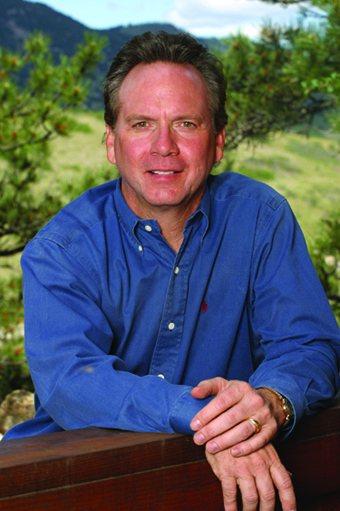
At age 16, well-known counselor Alan Wolfelt already knew he wanted to help those reeling from the grief associated with death.
As a young person, he lost his best friend and grandparents and wrote a mission statement that his life’s goal was to help those with similar experiences. By age 19, he had written his first book on loss.
Now, about 30 books later, he is director of the Center of Loss and Life Transition in Fort Collins, Colo. He travels the country with his message of promoting companionship with grievers instead of treating them.
On April 23 and 24, Wolfelt will bring that message to Toledo at two free events organized by Walker Funeral Homes. “[Wolfelt’s] very intellectual, but also funny. There’s a lot of interesting and meaningful stories he shares,” said Keith Walker, president of Walker Funeral Homes.
Walker attended a retreat at Wolfelt’s Colorado center in 2004, an experience he called “a great, great thing.”
An avid reader of Wolfelt’s books, Walker first invited the counselor to Toledo two years ago and plans to bring him back every other year if possible.
The April 23 seminar topic is “exploring Critical Questions for When someone dies,” and the April 24 topic is “exploring the dimensions of Adult Grief: The Caregiver’s Role.”
One issue Wolfelt will focus on is the importance of providing a safe place for mourners. “We live in one of the world’s most mourning-avoidant cultures,” he said. “We want to give people three days off and then ask things like ‘Are you over it?’”
Most people who care for those affected by grief fit into one of three categories: positive, neutral and negative.
Positive people “know their job is to enter what [mourners] think and feel,” Wolfelt said. These people remember that the mourner is the “expert” on his or her grief.
Neutral people “say things like, ‘If you need me, call me.’”
Negative people “make you feel worst. They try to take grief away.”
Being a positive influence and providing mourners a safe place is vital, Wolfelt said.
“If you have safe places and safe people, you can do what we call the work of mourning. sadly, most people don’t have those safe places,” he said.
Wolfelt’s message also stresses the idea of mourning and not just grieving. Grief is a feeling, Wolfelt said, while “mourning is a shared social response. It’s grief gone public.” Mourning can occur through talking with friends, journaling, visiting a counselor and in many other ways, Wolfelt said
“You integrate that loss and you are transformed,” he said of the mourning process. still, grief is something that doesn’t necessarily go away.
“We don’t get over grief. We live with and are changed by grief,” Wolfelt said. “You can replace a trinket. You can’t replace something precious that you’ve loved as a person and, in that case, you’re going to be different and that’s not a bad thing.”
Although painful, that transformation can bring about other positive changes.
“When somebody in your life dies, you come to realize what gives significance and meaning is the people you connect to,” Wolfelt said. As for the adage “Time heals all wounds”? “I always say grief waits on welcome, not on time. Time is only an influence if you have that safety,” Wolfelt said, adding that the cliché can be a passive way to deal with grief.
Mourners are often told it’s better to look ahead when all they want to do is remember the past.
“When you have a loss, there’s an instinct to go backward, but yet many of the messages we give are ‘Put the past in the past,’” Wolfelt said.
Instead, he recommended helping the mourner tell stories about his or her deceased loved one. It’s also important not to sugarcoat the process, he said.
“[People] try to put a happy face on [death] when we’ve come to understand there’s times in life when we have a downward turn in our psyche. We have darkness before we have light,” Wolfelt said.
Senior citizens tend to have more losses in their lives so it’s important to be sensitive to their mourning needs, he added.
“We need to recognize as we age we have more and more losses that require us to slow down and give attention to those losses,” Wolfelt said. “Allow an older adult to talk about what losses have shaped their life.”
Registration for “exploring Critical Questions for When someone dies” starts at 6:30 p.m. April 23. Registration for “exploring the dimensions of Adult Grief: The Caregiver’s Role” begins at 8 a.m. April 24. Both programs are free and at Central Park West, 3141 Central Park West, Toledo. Advance reservations are preferred. Call (419) 841-2422 to save a spot or visit www.centerforloss.com for more information.






















